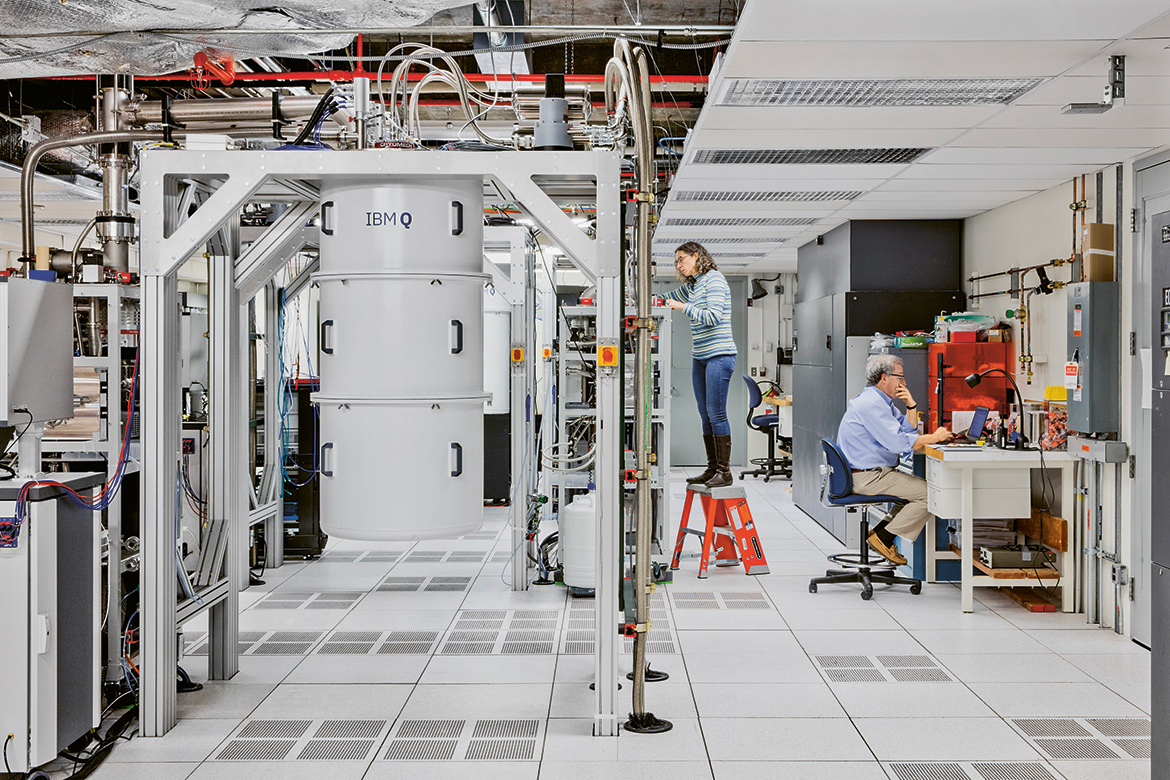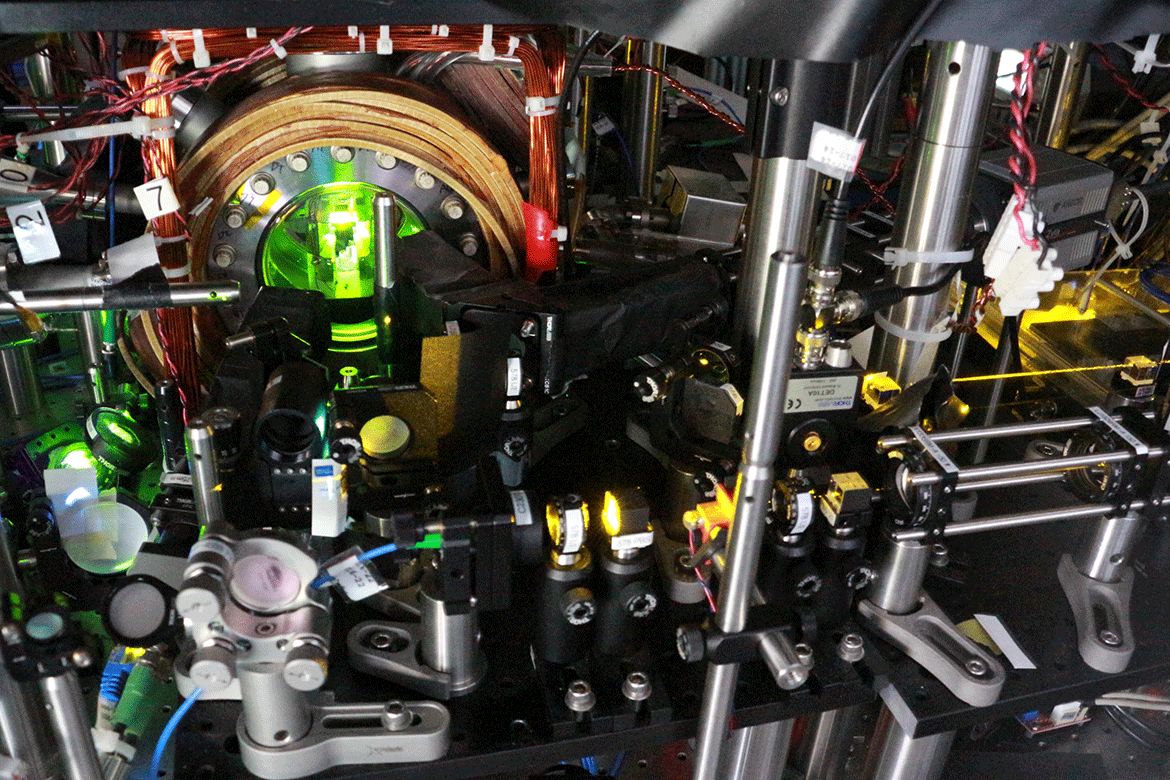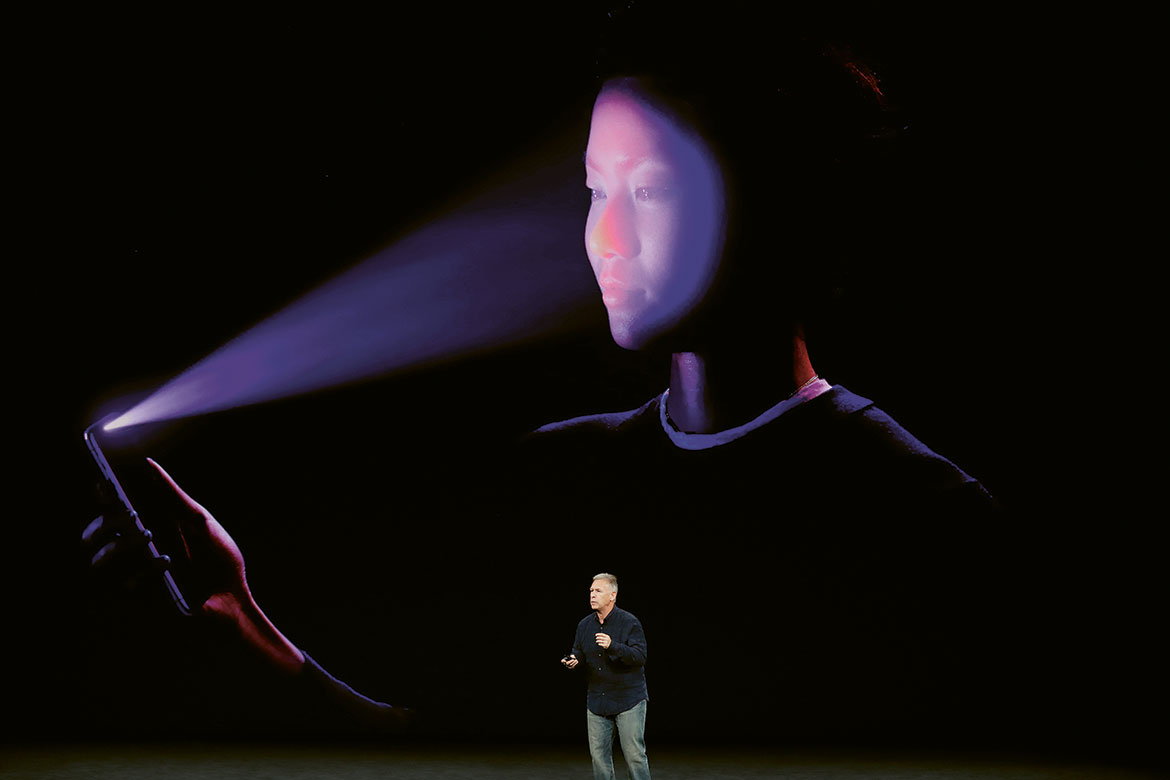In competition
The quantum race
While the IT giants are battling for supremacy, researchers are developing the necessary algorithms in the background.

Suddenly, computers have become big again. Here on the left is the quantum computer IBM Q at the Thomas J. Watson Research Center. Image: IBM
Quantum supremacy: these two words electrified the expert community in autumn 2019. The IT giant Google announced the superiority of its quantum computer over classical computers. But that same day, IBM issued doubts about Google’s claims, saying that the problem it had posed its quantum computer could also be solved by a powerful, ‘normal’, supercomputer.
Quantum computers are supposed to be able to solve complex problems such as determining the properties of chemical agents, analysing processes in the financial world, or developing new encryption techniques. It seems at least a start has been made.
At the heart of quantum computing are so-called quantum bits or ‘qubits’. In contrast to classical bits with their states of 0 and 1, qubits can exist in an overlap of both states, and can carry out far more mathematical operations simultaneously, depending on their quantum mechanical manipulations.
Large IT companies such as Google and IBM are primarily backing superconducting quantum chips. At present, only very special problems can be solved with such systems. “In order to realise a universal quantum computer that has automatic error correction for disturbances, we would need millions of qubits”, says quantum researcher Immanuel Bloch of the Ludwig Maximilian University of Munich. “That is still very far off”.
A football field at absolute zero
Experts like Bloch point to the challenges of upscaling these systems. Using current technology, a chip with millions of qubits would be the size of a football field. In order for them to function for mathematical operations, they would also have to be kept at extreme, supercool temperatures. The cooling systems available at present can manage several hundred qubits, says Stefan Filipp, the technical director of quantum computing at IBM Research in Rüschlikon in the canton of Zurich.
But the cooling is just one tricky issue. The quality of the superconducting qubits themselves is another. They all have to be built exactly the same, because any inaccuracy would immediately have an impact on the computational accuracy of the whole system. In order to make their systems more efficient, companies are currently investing billions in fundamental research.
Switzerland is positioned well in the quantum technology sector. At the National Centre of Competence in Research ‘QSIT – Quantum Science & Technology’, five universities and IBM Research are together working intensively on the necessary fundamentals. The NCCR ‘SPIN: Spin Qubits in Silicon’, for example, based at the University of Basel, is investigating so-called spin qubits together with IBM Research. To this end, the researchers use the intrinsic angular momentum of a particle. Filipp hopes that such systems will be “quicker, more compact and better scalable” than existing systems.
Besides the stability and scalability of their systems, researchers will in future also have to pay greater attention to issues such as transition protocols and new algorithms. Ultimately, Filipp insists, this technology will not just depend on who has the best hardware, but also on “who can entice the best developers to build on this hardware”.
Researchers are also developing other ideas for quantum computing platforms, in parallel to the superconducting qubits of the high-tech giants. This includes miniaturised systems using ultracold atoms in optic grids or ion traps. The advantage of these approaches is that the computing units – the atoms or ions – are by their nature all the same, so you don’t have to build them especially. This means the overall system can make extremely precise calculations. However, their mathematical operations are controlled by lasers, which are not easy to scale. Researchers such as Bloch are already using these systems for fundamental research – such as for investigations into magnetism.
It is not yet clear where this journey is going to take science – especially in the commercial sector. But perhaps the different problems will also result in different solutions. “It is quite possible that the biggest impact made by quantum computers and quantum simulators will remain in the field of science itself, and that the average citizen will never even interact with a quantum computer”, says Bloch.




